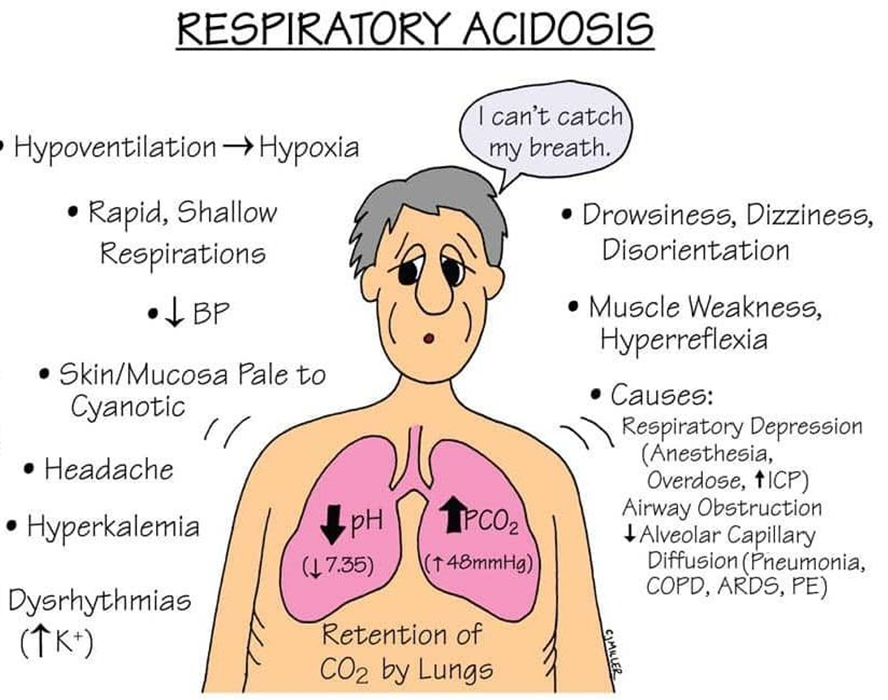A nurse is planning care for a client who has a new diagnosis of diabetes insipidus. Which of the following interventions should the nurse include in the plan of care?
Measure blood glucose levels every 4 hr.
Check urine specific gravity.
Administer a diuretic
Initiate fluid restrictions
The Correct Answer is B
A. This intervention is not relevant to diabetes insipidus, which affects water balance rather than glucose levels.
B. Checking urine specific gravity helps assess the concentration of urine, which can be very dilute in diabetes insipidus.
C. Diabetes insipidus is already characterized by excessive urination (polyuria), so administering a diuretic would exacerbate fluid loss.
D. Fluid restrictions are not typically necessary in diabetes insipidus because the primary issue is water loss rather than retention.
Nursing Test Bank
Naxlex Comprehensive Predictor Exams
Related Questions
Correct Answer is C
Explanation
A. Dry skin is not a typical manifestation of respiratory acidosis.
B. Abdominal pain is not a typical manifestation of respiratory acidosis.
C. Lethargy and altered mental status are common manifestations of respiratory acidosis due to the effects of hypercapnia (elevated PaCO2) on the central nervous system.
D. Numbness of fingers is not a typical manifestation of respiratory acidosis.

Correct Answer is D
Explanation
A. Respiratory acidosis would typically involve an elevated PaCO2, which is not seen in this case.
B. Metabolic alkalosis is characterized by an elevated bicarbonate level, which is not present in this scenario.
C. Respiratory alkalosis would present with a low PaCO2 and an elevated pH, which is not the case here.
D. The low bicarbonate level (HCO3) 18mEq/L (normal range of 22-26 mEq/L), and low pH 7.30 (normal range of 7.35-7.45), indicate metabolic acidosis. suggesting acidemia. The PaCO2 is also low at 28 mm Hg, indicating a respiratory compensation for the metabolic acidosis.
Whether you are a student looking to ace your exams or a practicing nurse seeking to enhance your expertise , our nursing education contents will empower you with the confidence and competence to make a difference in the lives of patients and become a respected leader in the healthcare field.
Visit Naxlex, invest in your future and unlock endless possibilities with our unparalleled nursing education contents today
Report Wrong Answer on the Current Question
Do you disagree with the answer? If yes, what is your expected answer? Explain.
Kindly be descriptive with the issue you are facing.
